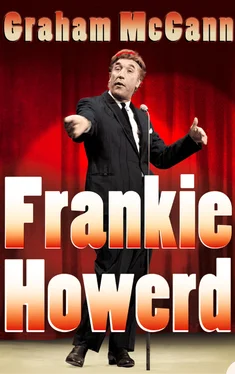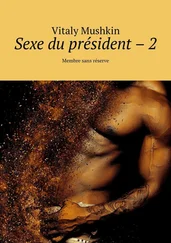1 ...8 9 10 12 13 14 ...25 In no uncertain terms I said that it was outrageous that officers should dictate to the men the way they should entertain and be entertained ⦠That there was too much censorship ⦠Too much patronising paternalism by the Entertainments Officer ⦠That an entertainments committee should be set up on which the men should be represented â instead of this vital matter being left in the hands of an Entertainments Officer completely lacking in any semblance of qualifications for the job. 21
The note went on, he would recall, âflorid with such adjectives as disgraceful, stupid, appalling [and] ridiculousâ. 22 Naivety, rather than any conscious desire to cause offence, had prompted such a diatribe: âHad I been more discreet in my wording, and wrapped the modified result in such phrases as âIt seems to me, sirâ and âMay I respectfully suggest, sirâ it might have been all right â but I was far too ignorant for such circumspect subtleties.â 23
The result, unsurprisingly, was that Bombardier Howard was dispatched to the guardhouse and charged with gross insubordination. Luckily for him, the Reverend Mackenzie stepped in and saved the day: he sought out the furious Commander-in-Chief and sowed a few seeds of dubiety into his fevered mind, assuring him that the offending letter had, after all, been solicited by his good self, and, though its style and tone had obviously fallen far short of Sandhurst standards, its author had clearly only been trying to be honest. The General relented, and Howard was reprieved.
In fact, he was more than merely reprieved. He was actually given his head. As his letter had suggested, an entertainments committee was established, censorship was relaxed and a higher level of commitment was demanded. Bombardier Howard became the de facto controller of the Shoeburyness concert parties. His superior officers, having reasoned that it was better to have a character such as him operating on the inside instead of on the outside, then sat back and waited to see if he would sink or he would swim.
He swam. He swam length after length. He was practically amphibian. Glorying in the greater stature, power and security that came (at least in his eyes) with his crowning as the unopposed âMr Sunday Nightâ of Shoeburyness, Frankie Howard pushed on with all of his brightly ambitious plans. The concerts grew bigger and bolder. The material became considerably more irreverent (a deliberate change of policy by such a playful anti-authoritarian) as well as a little âbluerâ (a trend whose start had far more to do with naivety than any conscious desire for greater vulgarity: âNobody realised that I was genuinely innocent ,â he protested. âSuch is the way reputations are made!â 24 ). There was also a change in sensibility: it gradually became more âcampâ.
âCampâ is one of those terms that has since been stretched to encompass everything from a marked preference for matching genitalia to a chronic weakness for placing words within quotation marks, 25 but, in the early 1940s, it meant little more than men mocking the supposed rigidity of their own masculinity â sometimes, but by no means always, in drag. It was a safe and playful form of release: a chance for homosexual men to behave less like heterosexual men, as well as a chance for heterosexual men, tired of going through the motions of military machismo , to behave less like heterosexual men.
It was a release for Frankie Howard, primarily, because it suited his overall comic style and sensibility. He had not been drawn to, and influenced by, other comedians because of their actual or supposed sexuality; he had been drawn to them because of their allegiances â always us against them, workers against bosses, women against bullying men, men against bullying women, the powerless against the powerful â and their devious methods of attack â such as George Robeyâs tactic of provoking anarchy by demanding order ( âDesist! â), or Robb Wiltonâs use of characterisation as a means of critique (âThe wife said, âYouâll have to go back to work.â Oooh , sheâs got a cruel tongue, that woman!â), or Jimmy Jamesâ subversive air of disingenuousness (STOOGE: âAre you puttinâ it around that Iâm barmy?â JAMES: âWhy, are you tryinâ to keep it a secret?â). 26
Howard was especially inspired, at this stage in his career, by the drag act of Norman Evans. As âFanny Fairbottomâ â a mob-capped, bulbous-bosomed, voraciously nosey Lancastrian harridan â Evans would lean over a back-street wall and exchange gossip with an unseen neighbour:
What did you say? Who âas? Her? That woman at number seven? âAs she? Is she? Oooooh, gerraway ! Oh, no, I wonât say a word, no, I never talk. But, well: fancy ! Mind you, Iâm not surprised. Not really. I told her. She would go to those illuminations! It was the same with her next door to her. Oh yes, and that wasnât the first time. I knew what she was as soon as I saw âer! Oh yes. That coalman was never away, you know! I mean, donât tell me it takes thirty-five minutes to deliver two bags of nuts! Heâs a bad lot! Oh yes. I knew what was goinâ on when I saw him shout âWhoa!â to his horse from her bedroom window ⦠27
Off-stage, there was nothing remotely effeminate about Evans â and no one was in any doubt that he was a happily-married heterosexual 28 â but, on stage, he relished the role of this gossipy old woman. Howard was impressed by his acting skills: âEven though [he] was talking to an imaginary person you could always hear the replies he was getting from his phrasing. He produced a personality on the other side of that garden wall without you ever seeing that person.â 29 Howard was also fascinated by the fact that Evans, when dressed as â and behaving like â a woman, could get away with the kind of material that, if it had been delivered by (or, in his case, as) a man, would have sounded far too âblueâ.
It was this sense of serving up an audience sauce through indirection, of sending out an encrypted signal of naughtiness, that drove Howard himself deeper and deeper into the camp sensibility, and often into drag. He wrote a new musical comedy routine, entitled âMiss Twillow, Miss True and Miss Twitâ, and, alongside two of his male colleagues, performed it dressed up as ATS girls. The trio (with Howard centre-stage as Miss Twit) began the act as follows:
Here we come, here we come,
The girls of the ATS â
Miss Twillow, Miss True and Miss Twit.
(Repeat)
The huge amount of work we do,
You know, youâll never guess.
But in Army life we fit â¦
To bend we never ought,
Because our skirts are short.
But they really do reveal
That weâve got sex appeal.
And if you want a date,
Enquire at the gate
For Miss Twillow, Miss True and Miss Twit ⦠30
It went down well inside the boisterous barracks, and it also proved popular on those occasions when they were given permission to perform outside as part of a touring concert party called the Co-Odments. 31 It ran into trouble, however, when, right in the middle of one lunchtime performance in the Mess, the air-raid siren started up. As the audience stampeded for the exit, Howard had just enough time to remove his wig, the two balloons that passed for breasts and the painfully tight womanâs shoes, and wriggle out of the borrowed ATS outfit and slip back into his own uniform â but, in the rush, the thick layer of make-up and the strip of ruby-red lipstick were forgotten. Out on parade, he stood stock still with his rifle, pack and painted face, looked straight ahead, and hoped for the best.
Читать дальше












